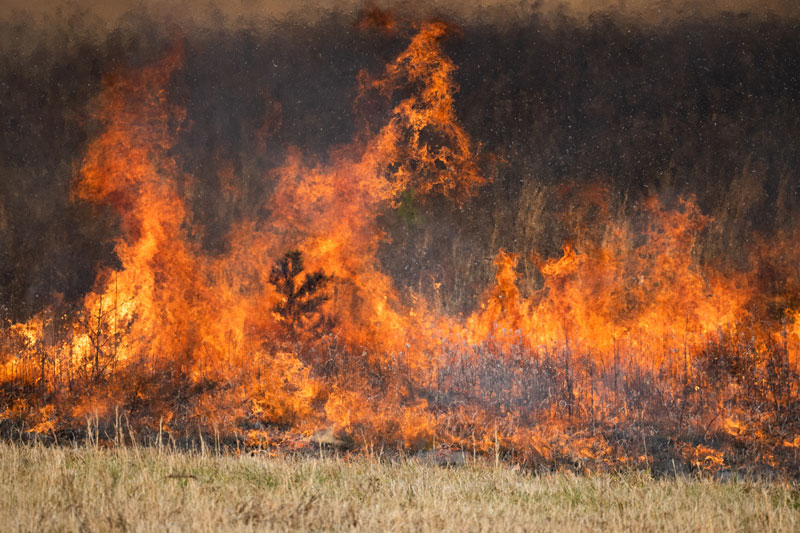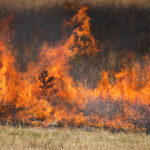
The increasing danger of wildfires across the UK and around the globe have been widely reported. If you type the words wildfire or disposable BBQ into a search engine there will be thousands upon thousands of results, news articles, and discussion pieces. But among the noise, what is that you actually need to know? And how can you stay safe?
The link between BBQs and wildfires
When temperatures are high for a sustained period, grass and foliage can become so dry that the smallest spark can trigger a devastating fire.
Things like discarded cigarettes and littered glass can cause unmanageable fires.
There has, however, been a bigger problem emerging over the past few years: disposable BBQs.
Their low cost, ready availability, and disposable nature, means that they are a huge contributor to wildfire incidences.
As they are low to the ground, their heat and sparks can easily pass to surrounding grass, and the tendency of people to leave them smouldering unattended once they have been used increases the risk.
The Guardian reported in 2020 that fire crews had extinguished 30 unattended barbecues from one beach in Dorset in a single night.
The risks of wildfires
There are a multitude of well-known risks with wildfires. They not only ruin wildlife habitats and destroy property, but they can also pose a serious risk to our health, especially for those with pre-existing health conditions.
Property damage
Generally thought to be reserved for hotter climates such as America or Australia, the increase in wildfires in the UK have led to many considering how they protect their homes and property.
Insurers are also having to consider the risks and include them in home insurance policies.
A wildfire in Wennington, Essex, last year destroyed 17 homes, with residents still suffering with the aftermath a year later.
Wildlife destruction
The loss of precious habitats is a well-publicised negative effect of wildfires, especially across national parks and nature reserves.
In Norfolk, nature reserves lost over 100 acres of habitat as a result of wildfires in July 2022.
This can be devastating for rare species of birds and wildlife, as they struggle to survive when their habitat is gone.
Health risks
What many of us don’t realise though, is that wildfires give off harmful amounts of smoke containing a mixture of gases and particles that are detrimental to our health.
As Dr Wiseman states, common symptoms include:
- coughing
- wheezing
- shortness of breath
- sore throat
- irritated eyes
- nasal congestion
It can also cause severe respiratory distress in those with pre-existing respiratory conditions.
How to prevent wildfires
Wildfire prevention generally involves a fair amount of common sense. Dispose of cigarettes, BBQs, and other lit objects correctly, be aware of your surroundings, and keep any activities under control.
For disposable BBQs, it is important to use it in a raised position and away from combustible materials. Many parks and outdoor spaces, such as Rutland Water, now have designated BBQ areas with raised platforms for disposable BBQs to be used safely. You should also wait for the flames to die down before introducing food to it, and let it cool for several hours before safely disposing of it.
It is also advisable to take small pieces of firefighting equipment with you or have it easily accessible in your car should the worst happen.
Small fire extinguishers can provide peace of mind that you would have options if a fire was to break out and would help to potentially put out a fire before it turned into an uncontrollable blaze.
The Firechief range includes high-performance fire extinguishers, fire blankets, first aid kits, lithium-ion fire extinguishers and the Kitchen Stove Guard. For more information, call us on +44 (0)330 999 0019 or email sales@firechiefglobal.com.
The information contained within this blog is provided solely for general informational and educational purposes and is not intended as a substitute for professional advice. Before taking any actions based upon this information, we advise the reader to consult any and all relevant statutory or regulatory guidance and where necessary to consult a qualified fire or industry regulation professional. The use or reliance on any information contained herein is solely at the reader’s risk.

